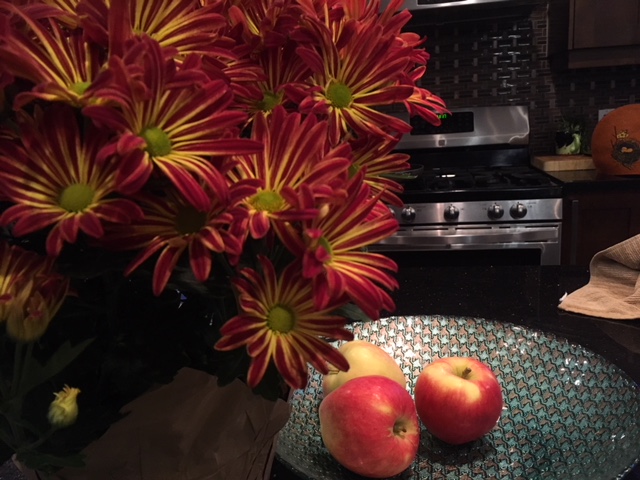I just finished — for now — a chapter for my MFA, this one on forgiveness. I usually begin a chapter throwing a whole bunch of stuff into a fresh, clean word document. All my stories that I think will fit, my research, great quotes from experts that I think will spruce things up at the right moments.
As I write, I usually have a teetering pile of books by my side, my authority figures who remind me that I don’t need to have it all figured out myself. My corner of the dining room table will be a creative mess for days as I inch my way through my chapter.
I’m so glad we bought a long table years ago. Back then we were mostly picturing big dinner parties with loud conversations. We do that. But it’s a also a lovely writing home for me, when my basement office is more stifling than life-giving. There’s room for me to stay set up in one corner, and we can all eat at the other end.
As I narrowed in on the ending for this piece, I remembered my mentor’s advice this summer: when it’s done, it’s done. Let the piece end itself, he said, instead of legalistically trying to wring 5000 words out of every topic. As it turns out, all I know about forgiveness fits into 3600 words, so I wrapped it up.
Then, I gathered up all the material I did not use from the document, and brought them over to my Leftovers File, in a big cut and paste sweep. It’s my guess they will remain there forever. But knowing they are in what is more of a compost bin than a garbage can makes them easier to let go of in the first place, and you never know, they may show up somewhere else someday.


I loved your “Leftovers” piece! And I hope I will someday get to read your chapter on forgiveness…
Congratulations on finishing another chapter! I love this … especially the metaphor of the compost bin. It made me think of how lovely, unexpected surprises can sometimes come out of the compost we make and then spread on our little vegetable garden each year. An old peach pit somehow, unwittingly becomes a new little tree … a zucchini plant springs up from the rich soil where we’d only (intentionally) planted tomatoes. It makes it all kind of fun. May your compost heap contain some such delights for you in the sometime future.
Thank you!
I like the compost bin analogy too. Let them simmer and percolate, some of them may flame up into something hot and real and strong and powerful.
Loved this piece as it explores both process and place, and their part in the work and joy of writing. Thanks for giving us a glimpse into this.
Appreciated both your writing and the warm photograph. Could identify with much that you said. It also tickled me to know that someone else, at least periodically, commandeers a portion of the dining-room table, despite having a study in which to work.
Writers can be messy people.